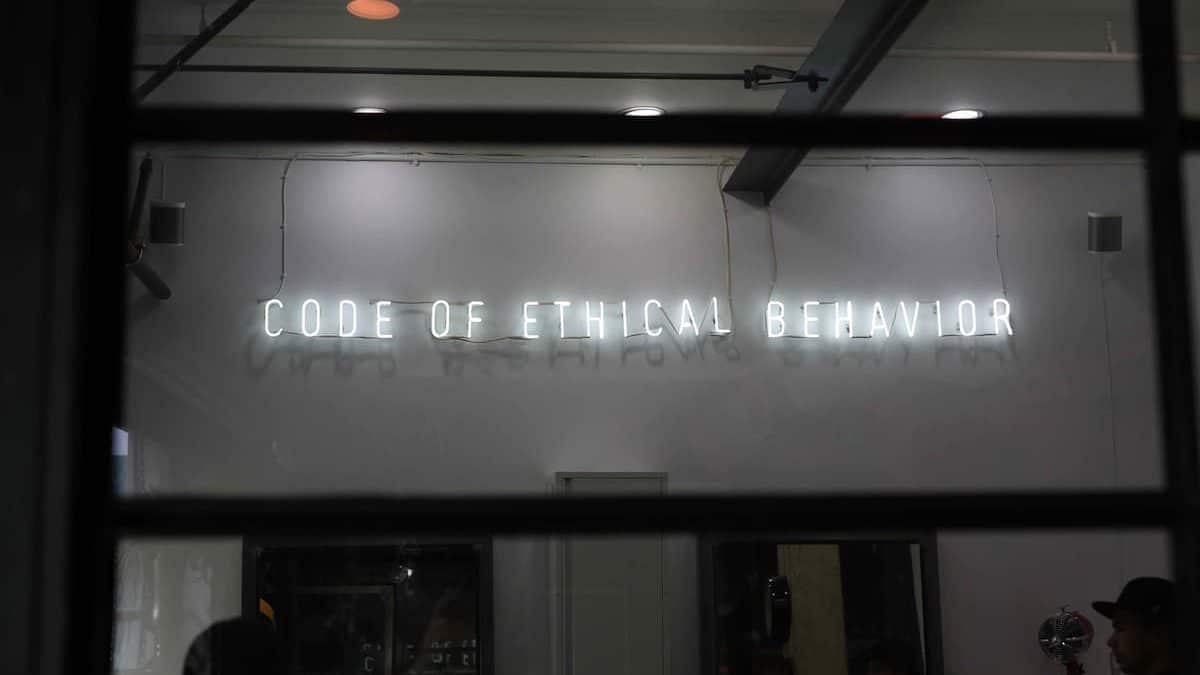Sustainability and wider social and environmental issues have never been more topical. Consumers are now able to choose from a range of sustainable alternatives to their favourite products, and search for terms such as ‘carbon neutral’, ‘all natural’ and ‘cruelty free’ when choosing a company to fulfil their needs. Fairtrade labels, brands advocating for fair treatment of warehouse and production staff, and other indicators of eco and social awareness are highly sought after by consumers, and have grown beyond a specific niche to become far more mainstream. As a result, the importance of ethical marketing has never been greater.
However, there is a certain amount of scepticism about corporate sustainability and ethical marketing due to the perception that businesses are, first and foremost, sales driven. For example, many businesses are making positive steps towards increasing their environmental consciousness, but addressing issues such as plastic in packaging isn’t always the biggest impact they are leaving behind. Here we look at ethical marketing, and how to consider implementing more ethical practices in your business or organisation.
What is ethical marketing?
Ethical marketing refers to the practice of promoting fairness, honesty, and empathy in all marketing activities, to ensure that your brand has a wider positive impact on the environment and society it is a part of. The official CIM definition is:
“The process by which companies market their goods and services by focusing not only on how their products benefit customers, but also how they benefit society and socially responsible or environmental causes.”
For example, many chocolatiers now promote the Fairtrade agreements made with cacao growers, or the positive steps they are taking towards offsetting damage to rainforests. Generally speaking, ‘ethical’ or ‘mindful’ marketing relates to a marketer’s responsibility to ensure all marketing and commercial activities adhere to core ethical principles, including integrity, humility, and honesty — both internally, and externally.

Why it is Important to keep your promises – the Brewdog Incident
You almost certainly remember an occasion where a brand made a promise to act on some kind of environmental or social issue, but failed to follow through. While making desirable promises may gain trust and support in the short term, the long-term effects of failing to follow through on your statements can be detrimental to a business.
The incident we saw earlier this year regarding BrewDog and their failure to uphold their advertised values acts as an excellent example of the effects of false promises. The incident was brought to attention when over one hundred people, including a large number of former employees, signed an open letter to the company claiming that they did not uphold their commitments to a positive company culture and sustainable operations. With many internal figures shining a light on the company’s issues of staff burn-out and a toxic culture, as well as the frequent uses of private jets in contradiction to their supposed environmental values, public opinion has soured towards the Scottish brewers.
While a controversy such as this may not have dealt any major damage to the company’s profits, BrewDog will forever be remembered for this blemish in their past, despite efforts to improve their culture and reclaim their employees’ loyalty. It is far more challenging to regain the trust of an old customer who was let down, than to obtain the trust of a new customer, and with the craft beer market growing ever more diverse, the presence of other options may lead many customers to migrate elsewhere.
How to promote ethical behaviours within your business
The best way to employ ethical marketing is to remain mindful and consistent when following certain principles. Using shady tactics in your marketing will do nothing but damage your brand image in the long run. Focusing your marketing on the legitimate positive impact of your company will maximise customer satisfaction and trust, and improve your brand credibility.
Below are a list of guidelines to follow to make a move towards ethical marketing:
DO
Be Transparent
When marketing a product or service, ensure you are fully transparent about it. This could mean displaying the full list of ingredients within your skincare products, or the efficacy of your nutritional supplement. If you are marketing your product, you should be proud of it! Transparency should not be a challenge if you are confident in your product. Data has shown that businesses are often afraid to advertise their environmental credentials due to a perceived cynicism among consumers about ‘greenwashing’, or making false claims to promote the impression of being sustainable. This has been termed ‘secret sustainability‘, and has come about because declaring eco-friendly practices also invites scrutiny of other aspects of business, such as the supply chain and diversity and inclusion policies, all of which need to be held to the same robust standards as an environmental pledge.
Protect Customer Data and Privacy
Amidst increasing concern among customers over the security of their personal data, it is important to have the correct measures in place to protect their private information, and to emphasise the company’s commitment to consumer privacy. Since the introduction of GDPR, there has been an increased awareness of the penalties for failing to safeguard customer data, but this should always remain front of mind. Although customer data can be incredibly useful for understanding purchasing decisions, treat it with the respect it deserves, and remember that there are people behind the numbers.
Commit to Sustainability and Human Rights
With ethical consumerism becoming an ever-growing priority, many customers want to feel that they are making the right choice by purchasing your product. Be honest about your ingredients, product components, and your supply chain. Fashion brands have notoriously opaque supply chains, with human rights abuses coming to light in leading retailers such as Boohoo, where shares almost halved when it was revealed that factory workers in Leicester were being paid less than living wage and often worked 24 hour shifts. Hold all of your stakeholders to the high standards you expect, and regularly review other parties involved in your business to ensure they do the same.
Respond Meaningfully to Customers
Should customers bring to light concerns regarding subjects like the safety of a product or service, this should always be seen as a top priority. The protection of consumer rights, and quick action to solve consumer issues, helps to strengthen long-term consumer trust in your brand. This relates back to being transparent wherever possible. For example, leading makeup brand MAC used to be cruelty-free, but in 2012, they lost their cruelty-free status when they began selling in China. China has a mandatory animal testing policy as part of its safety assessments, but through clever copywriting, MAC distances itself from this and maintains that it is ‘working towards a cruelty free world’. They are frequently asked about their animal testing policies on social media, with stock responses often being pasted in to answer each question. This has created considerable suspicion among once-loyal customers as their connection with animal testing creates deliberate ambiguity and misdirection.
Maximise Benefits and Minimise Risk
The key aim of every ethical marketing strategy should be to benefit as many people as possible, while causing as little harm or cost as possible. There is a perception that there is an inevitable downside to sustainable practices, such as increased prices or a reduction in product quality. However, the Dow Jones Sustainability Indices (DSJI) show that those at the top end of the benchmark outperform those at the bottom – actively investing in sustainable business practices can help your business to thrive. The key takeaway from ethical marketing and sustainable development goals are that having a generally positive, lasting impact is essential. In essence, how do we meet our own needs without compromising the ability of future generations to meet their own?

DON’T
Exaggerate or Make False/Unverified Claims
Exaggerating the benefits of a product, making unverified claims about your products, or making false claims about rival products, could all damage the integrity of your brand. Dishonesty can break your customers’ trust in your brand, and what may begin as a quick way to win over customers in the short run can quickly transform into a poor brand reputation in the long term.
Generalise or Stereotype
Promoting stereotypes in order to sell a product can turn the masses against your company and damage your reputation. This behaviour within marketing can also worsen the harm of stereotypes throughout wider society, such as helping to embolden misogyny, racism, or homophobia. For example, gender stereotypes were banned by the Advertising Standards Authority in 2019, but there are often-cited cases of products being unnecessarily gendered, such as razors (Gillette) and even pens (‘Bic for Her‘). Extreme examples of these generate hilarity and exasperation in equal measure, but illustrate the issues inherent in resorting to outdated generalisations to market products.
Exploit Emotions
While evoking an emotional reaction from consumers is one of the most effective ways to generate interest in your products and brand, there are good and bad ways to do this. Triggering emotions such as rage, fear, or sadness in an overt way could be seen as manipulative. Customers want their emotions to be sympathised with and shared, not exploited.
Examples of Ethical marketing strategies
Following the guidelines above will ensure you retain the trust and respect of your customers, while also maintaining a positive reputation throughout your particular industry. For reference, here are two notable examples of successful brands that have taken a conscientious approach to their marketing and general operations.
Patagonia
Since 1985 Patagonia has been gradually building its reputation as a socially responsible clothing brand, which focuses on premium outdoor and adventure-wear.
Patagonia separate themselves from their competition through their commitment to “build the best product, cause no unnecessary harm, use business to inspire and implement solutions to the environmental crisis”. They have developed a number of ethical marketing campaigns which reflect their conscientious approach to clothing retail. These include titles such as ‘1% for the Planet’, ‘Wornwear’, and ‘Activism’.
Patagonia’s ‘Don’t Buy This Jacket’ campaign, developed in 2011, aims to raise awareness to the social and environmental impact of fast fashion. The trend towards cheap, replaceable fashion has had a disastrous impact on the levels of environmental pollution through textile waste, and redoubled sweatshop labour in undeveloped countries.

The straight message of ‘Don’t Buy This Jacket’ is “don’t buy this jacket if you don’t need it,” according to Alex Weller, Patagonia’s European Marketing Director. In addition to this, Patagonia also offer free repairs on lifetime warranty products via the Common Threads Initiative, in a further effort to minimise their textile waste.
Through decades of activism and and commitment to change, Patagonia is a shining example of effective ethical marketing, where the brand has acted on their promises and followed through with their vision, a quality which has built a strong sense of trust with their customers.
LUSH
Lush is a popular cosmetics and skincare retailer, which separates itself from competitors by offering freshly handmade products. Their mission statement reads: “No company should be trading from an unethical position, and society has the right to expect, as the norm, fairness and resource stewardship from the companies that supply them.” Lush rejects the labels of ethical, eco-friendly, or sustainable, believing this should be commonplace in retail, rather than being used as a marketing ploy.
With this in mind, Lush do make their disdain towards animal testing known. They also voice their values and purpose across social channels, including Instagram and YouTube, where they share videos on a wide range of socially responsible topics. Furthermore, the brand’s packaging is widely recyclable, and they have a ‘five pot programme’ where a customer can return five of their empty black pots in return for a free face mask.

Both Lush and Patagonia are exceptionally successful brands, whose growth has been ensured by the level of trust they form with their customers. These two brands are prime examples of how your company can do well, by doing good. With ethical marketing, there is often a ‘knowing-doing’ gap, where businesses know they need to be sustainable, but very often avoid doing it. Avoid viewing ethical practices and sustainable changes as a cost, and instead view them as an investment in your business’s future.
Summary
Planning, implementing, and monitoring your strategy with your company’s values in mind can help you retain the trust of your customers and employees, allowing you to drive sales while maintaining a positive reputation. Many brands push their environmental and social policies throughout their marketing, in order to boost the ethos surrounding their products and company as a whole. However, it is important to bear in mind that should you be found to stray from the values you advertise so strongly, this will reduce consumer trust, which may also reflect upon the commercial success of your company as a whole.
If you are looking for support with your business’s ethical strategy, fill in our contact form or email our customer service team at customerservice@mackman.co.uk.
For related articles, take a look at some of our previous posts:
